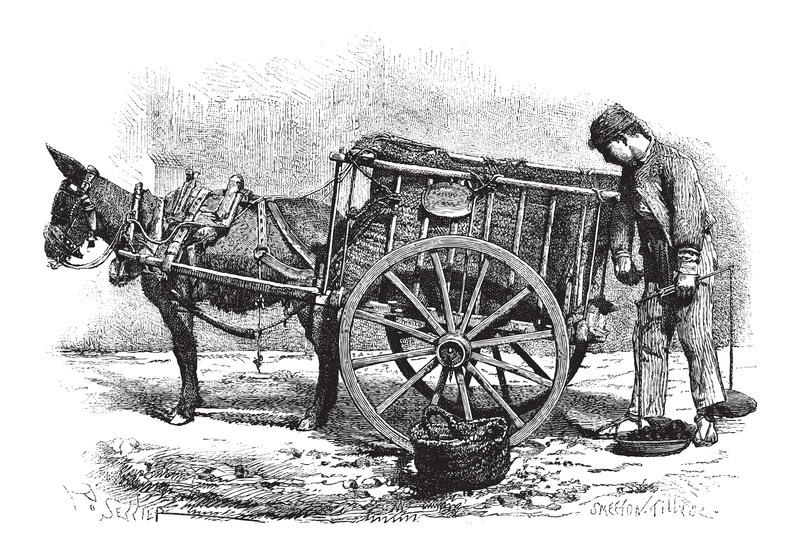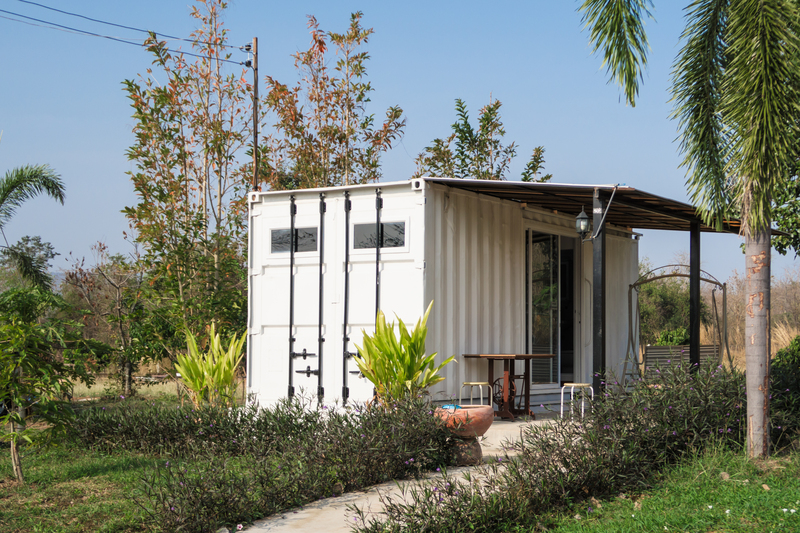Creative Ideas to Save When Handling Bulky Waste Items
Handling bulky waste items is a challenge that homeowners, tenants, and businesses face at some point. Whether you are renovating, moving, or simply decluttering, dealing with large unwanted items can be a costly and time-consuming process. However, with a bit of ingenuity and the right approach, you can manage these cumbersome waste materials without breaking the bank. In this comprehensive guide, you'll find creative, sustainable, and cost-effective methods to handle large waste items, plus valuable tips to help you stay eco-friendly and organized.

Understanding Bulky Waste: What 'Large Items' Really Are
Bulky waste generally refers to items that are too large or heavy to fit into standard waste bins. Typical examples include:
- Old furniture (sofas, beds, mattresses, wardrobes)
- Appliances (refrigerators, washing machines, ovens)
- Carpets and rugs
- Large garden waste (tree branches, logs)
- Construction debris
- Bikes, gym equipment, and more
Smart Strategies to Save Money on Bulky Waste Disposal
1. Plan Ahead to Reduce Costs
The key to managing big waste items on a budget is organization. Start by conducting an inventory of bulky waste you want to remove. Measure the size and weight where possible, as this will help you explore available options.
- Sort and Separate: Divide items by material (metal, wood, fabric, plastic). Sorted items have a higher chance of being reused, recycled, or disposed of at reduced rates.
- Consolidate Tasks: If your neighbors or friends also need bulky waste removal, consider combining your loads. Shared removals often lead to discounted collection charges.
- Schedule Appropriately: Take advantage of your municipality's scheduled large item pickup days, which are often free or offered at a nominal cost.
2. Maximize Municipal Pickup Programs
Most local councils and waste management authorities offer bulky waste collection services for residents. While some services are free, many require pre-booking or a small fee.
- Book Early: Collection slots fill up quickly. Plan your home projects or clear-outs around these dates to avoid costly private alternatives.
- Know the Guidelines: Check what is accepted, how much can be collected, and the preparation requirements to avoid additional fees.
- Prepare Correctly: Place items outside according to instructions--usually dismantling or placing items curbside reduces labor costs and, thus, your charges.
3. Donate or Give Away Bulky Items
Your old large household items might still be useful to somebody else. Donation not only helps you eliminate waste removal fees but also supports those in need.
- Charities and Thrift Stores: Many organizations welcome donations of usable furniture or appliances. Some offer free pickup services for large items.
- Online Marketplaces: Post your items on platforms like Facebook Marketplace, Craigslist, Freecycle, or local community groups with a "free for collection" tag.
- Community Swaps: Organize or participate in neighborhood swap events where unwanted large items find new homes.
4. Sell to Recoup Costs
Turning your bulky unwanted goods into cash is not just creative, it's smart!
- Yard or Garage Sales: Large items, like furniture or sporting equipment, often attract local buyers willing to collect in person--saving you hauling costs.
- Online Listings: Use detailed photos and honest descriptions to attract buyers who need what you have.
5. Reuse, Repurpose, Upcycle
Before discarding, consider whether your big old items have a second life in your home. Upcycling is both eco-conscious and cost-saving.
- DIY Furniture Projects: Transform wooden wardrobes or tables into garden planters, shelves, or pet beds.
- Artisan Workshops: Donate to local craftsmen or art schools who may use materials creatively.
- Reuse in the Garden: Old bathtubs can become quirky flower beds; pallets can be made into compost bins.
6. Hire a Skip or Dumpster--But Do It Smartly!
Sometimes, disposal is the only option for very bulky rubbish. Here's how to minimize costs:
- Compare Providers: Prices for skip hire vary--always shop around for the best deal.
- Fill Efficiently: Disassemble items to maximize space, and avoid paying for unused capacity.
- Share the Skip: Split costs with neighbors for a cost-effective disposal solution.
7. Use Specialist Bulky Waste Collection Services
Private junk removal companies offer convenience, especially for large volumes of household waste or hard-to-move items. Save money by:
- Getting Multiple Quotes: Compare rates from several local companies.
- Booking Off-Peak: Some firms offer discounts during quieter periods.
- Pre-Sorting: Reduces labor charges when the crew arrives.
Eco-Friendly Ideas for Handling Bulky Waste Responsibly
Recycle and Recover Materials
Many bulky waste materials are recyclable. Metal frames, wooden furniture, and some plastics can find new life if disposed of in the right facilities.
- Check Local Recycling Centers: Some accept large items for free or a small fee.
- Appliance Recycling: White goods like fridges or washers often contain hazardous elements--but many centers will collect and process these safely.
- Deconstruction: Separate reusable parts (metal brackets, drawers, glass) before disposal for higher recycling chances.
Utilize Producer Take-back Programs
Some retailers and manufacturers operate "take-back" schemes for large products, encouraging sustainable disposal.
- Furniture Stores: Some collect old sofas or mattresses when delivering replacements.
- Electronics Retailers: Chain stores often offer recycling services for old large appliances.
Partner with Social Enterprises
Organizations dedicated to sustainability may collect, refurbish, and redistribute unwanted oversized items.
- Employment Programs: Some groups train workers to repair and resell donated goods, diverting waste from landfill.
- Donation Pickups: Social enterprises sometimes offer bulk collections for a small fee or even free.
Practical Tips to Make Bulky Waste Management Easier
- Measure Doorways and Pathways: Disassembling items makes removal safer and avoids unexpected damages.
- Use Proper Equipment: Borrow or rent dollies, straps, and gloves for safer moving and handling.
- Lift with Care: Get help for heavy lifting and practice proper ergonomics to prevent injury.
- Protect Your Property: Use blankets to protect floors and walls when transporting large objects.
Benefits of Creative Bulky Waste Management
- Cost Savings: Donating, selling, or recycling reduces or even eliminates disposal fees.
- Environmental Impact: Diverting large items from landfill helps reduce greenhouse gas emissions and conserves natural resources.
- Community Engagement: Giving away or selling items locally benefits your community and fosters goodwill.
- Personal Satisfaction: Turning potential waste into something useful or helping others is rewarding.

Common Mistakes to Avoid With Bulky Items Disposal
- Illegal Dumping: Never leave bulky goods on the street without permission--it's ill-advised, unsightly, and punishable by fines.
- Ignoring Hazardous Materials: Some bulky waste items (like old fridges) contain harmful substances; always follow safety disposal guidelines.
- Missing Out on Reuse: Don't discard items in good condition--explore all creative reuse options first.
Conclusion: Turning Big Waste Into Big Savings
In summary, taking the time to handle bulky waste efficiently and creatively not only saves money but also supports a healthier environment and your local community. Combining strategic planning with smart disposal methods--such as giving away, selling, recycling, and upcycling--enables you to transform unwanted possessions from a burden into an opportunity.
The next time you face a pile of oversized household rubbish, remember that with these actionable ideas and responsible practices, you can save money, reduce your environmental footprint, and maybe even discover a hidden gem or two along the way!
Ready to reclaim your space and save on bulky waste solutions? Use these innovative ideas to handle your large items smartly and sustainably.